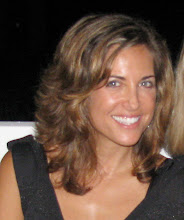If you are going to eat or buy eggs - Organic, Free Range would be the best choice. Free-Range is not always organic, so make sure it says both! We talked about factory farming a bit, and basically factory farms have terrible conditions for chickens, if you have read about factory farming, watched "Food Inc" or watched "Meet your Meat" on YouTube you have seen the horrid conditions these hens go through for their eggs and meat.
Chickens and egg laying hens are the most abused of all the animals raised to slaughter in big factory farms. They are crammed by the thousands into sheds that are filthy and filled with their own excrement and never see the outdoors. They are pumped with antibiotics and hormones to make them grow unnaturally fast, many can't even walk and have broken bones because their legs cannot support their genetically altered large bodies, not to mention the abuse they go through before they are slaughtered. Egg laying hens are surrounded by nothing natural at all. They are in small confines and their beaks are seared close so they don't attack each other which happens when they go crazy in such small confines. It takes 34 hours to produce 1 egg and then they are often shocked into a another egg laying cycle by being starved for 14 days. Many die during this cycle.
Many people just won't eat animals that are abused like hens, but many buy organic because the chickens are treated more humanely and the eggs haven't been exposed to antibiotics, hormones or pesticides. Organic hens according to the guidelines of the "USDA's National Organic Standards" are:
- Chickens must be fed organic feed (which improves taste, nutrition and health benefits of their meat and eggs) grown on land free of synthetic fertilizers or pesticides or genetically modified organisms (GMOs) and fed no animal by-products.
- Must live cage free with access to the outdoors.
- No antibiotics are allowed, unless there is an infection
- The farmers must follow strict humane treatment of their animals - mistreatment of chickens or other animals could lead to a farmer loosing their organic certification - although there is a debate about mistreatment of organically raised hens....
So if you are going to eat eggs, the Organic Free-Range/Cage Free is not only the healthier choice nutritionally for you, but also a better choice to help make your case farmers to treat these animals more humanely!
TAKEAWAY:
I Started reading "Healthy at 100" by John Robbins which followed a study on finding the oldest and healthiest people in the world. This study was done by Dr. Alexander Leaf working for National Geographic in 1970. One group of people he followed were the Vilcabambans, a people famous for their long and extremely healthy life spans. They were from a small town in Ecuador's Andes Mountains. He studied these people who were amazingly heathy and vibrant at the age of 103. They did live in beautiful, warm, lush surroundings and were very active, but the older people of this village had no experience with processed food, artificial sweeteners or chemical additives. Vegetables were always fresh from the garden and eaten the day they were picked. Their diet was almost all vegetarian made up of whole grains, vegetables, fruits, seeds, nuts and beans. They would eat milk and eggs, but very little and they ate almost no meat or butter. Their sweets came from figs, pineapples, watermelons, oranges or bananas.
I think we all know we should eat foods that are as close to nature as possible - cooking in our own kitchens, not buying foods wrapped in plastic or out of a box....

FYI: Vegans can eat dark chocolate too, just have to read the ingredients carefully because some brands, like Hershey's have dairy products in evan there "special dark" chocolates.
ReplyDelete